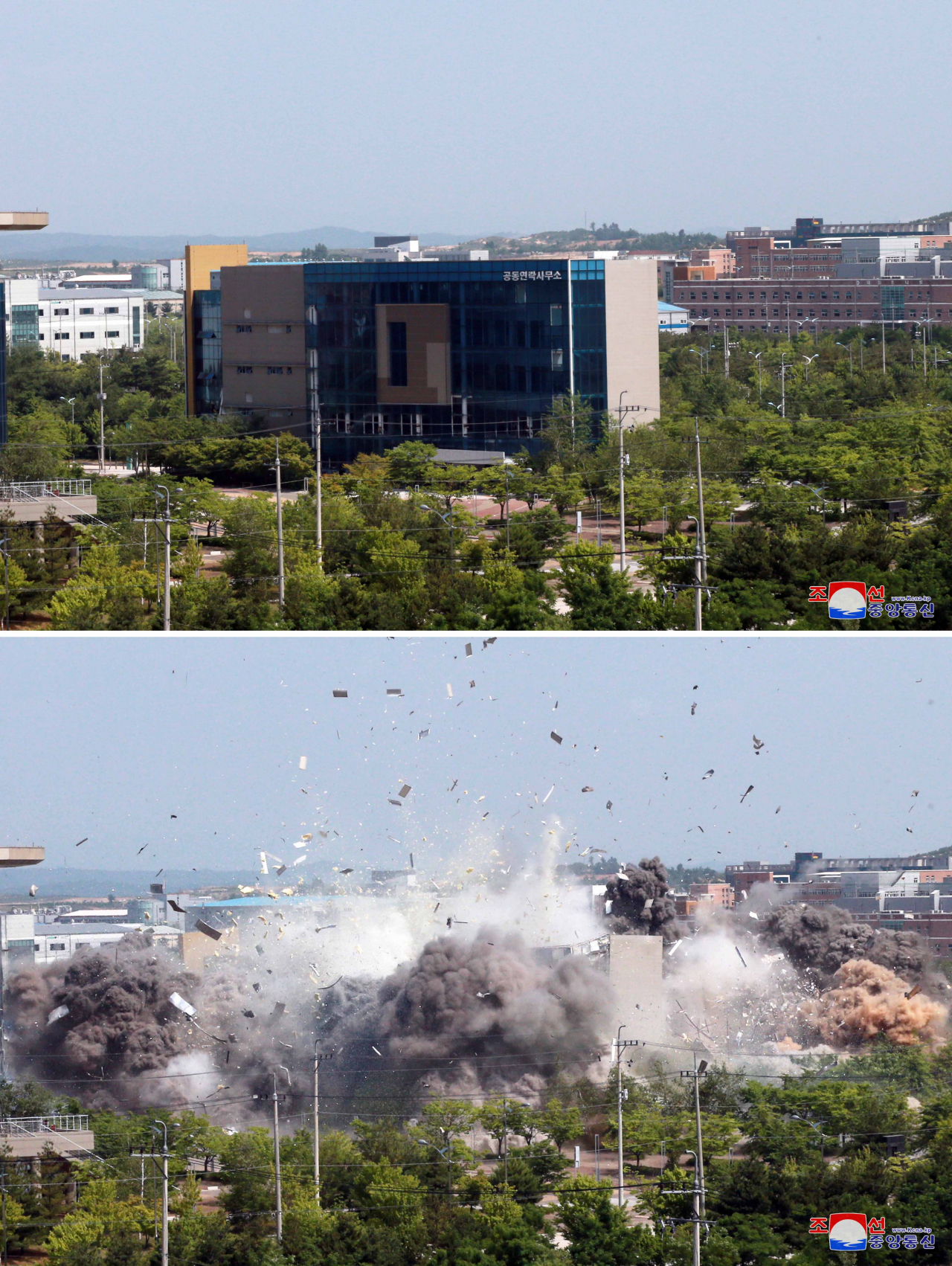S. Korea sues NK for blowing up liaison office
Legal action taken mainly to prevent expiration of S. Korea's right to claim compensation
By Ji Da-gyumPublished : June 14, 2023 - 18:18

The South Korean government on Wednesday filed a lawsuit seeking damages from North Korea for blowing up the inter-Korean liaison office in June 2020, marking the first case of Seoul taking legal action against the North Korean authorities through a local judicial court.
The South Korean government submitted a lawsuit to the Seoul Central District Court at approximately 2 p.m., seeking compensation from North Korea for damages amounting to 44.7 billion won ($35 million) caused by the destruction of the inter-Korean liaison office and the adjacent comprehensive support center building.
In the lawsuit, the plaintiff is the Republic of Korea and the defendant is the Democratic People's Republic of Korea, the official names of South and North Korea, respectively. The Ministry of Justice will handle the legal proceedings on behalf of the South Korean government.
Seoul has taken the legal action primarily to prevent the expiration of the country's right to claim compensation, South Korea's Unification Ministry said in a statement.
According to South Korean civil law, the right to claim compensation for damages caused by an illegal act expires three years from the date the victim becomes aware of the damages or from the date the damages occur. The statute of limitations for the South Korean government is set to expire on Friday.
If North Korean authorities ultimately refuse to participate in the lawsuit, it is anticipated that the South Korean government will prevail as the plaintiff. But even if the South Korean government wins the suit, there are currently no means available to force North Korea to comply with the compensation payment.
The South Korean Unification Ministry said it will collaborate with relevant ministries to pursue the case and come up with ways to collect compensation.
"With regard to the effectiveness (of the legal action), the government will engage in consultations with relevant departments, including the Ministry of Justice, to explore possible enforcement measures," an official at Seoul's Unification Ministry said on condition of anonymity during a closed-door briefing held on Wednesday afternoon.
"In order to do so, it is necessary to prioritize the preservation of rights through the suspension of the statute of limitations."
The official suggested that the South Korean government could consider the possibility of seeking compensation from the Foundation of Inter-Korea Cooperation, an agency responsible for protecting and managing North Korean copyrights.
Following the halt of inter-Korean remittances in 2008, the foundation has deposited royalties worth over 2.3 billion won, which are intended for North Korea, with the South Korean court.
The official also explained that the South Korean government intends to use a previous case as a reference. In the previous case, former South Korean prisoners of war sought compensation through the Foundation of Inter-Korea Cooperation on behalf of the North Korean authorities.
The inter-Korean liaison office was established in the city of Kaesong, located near the inter-Korean border, as part of the implementation of the Panmunjom Declaration signed in 2018 by South Korean President Moon Jae-in and North Korean leader Kim Jong-un.
The construction expenses for the office were entirely covered by the South Korean government, while the land on which it was built belonged to North Korea.
The office was inaugurated in September 2018. But in June 2020, North Korea blew up the office in protest of the distribution of anti-North Korea leaflets that had crossed the South-North border.
"North Korea's violent act of demolishing the Inter-Korean liaison office is a blatant violation of the law," the South Korean Unification Ministry said in a statement.
"This act not only contravenes inter-Korean agreements such as the Panmunjom Declaration for Peace, Prosperity and Reunification of the Korean Peninsula, but also undermines the very foundation of mutual respect and trust between the two Koreas."
The ministry emphasized that taking legal action aligns with the Yoon Suk Yeol government's commitment to establishing inter-Korean relations founded on mutual respect and trust, while also firmly responding to North Korea's misconduct based on principles.
"We will also firmly respond to North Korea's infringement of the property rights of the South Korean government and its citizens."



















![[Today’s K-pop] Treasure to publish magazine for debut anniversary](http://res.heraldm.com/phpwas/restmb_idxmake.php?idx=642&simg=/content/image/2024/07/26/20240726050551_0.jpg&u=)